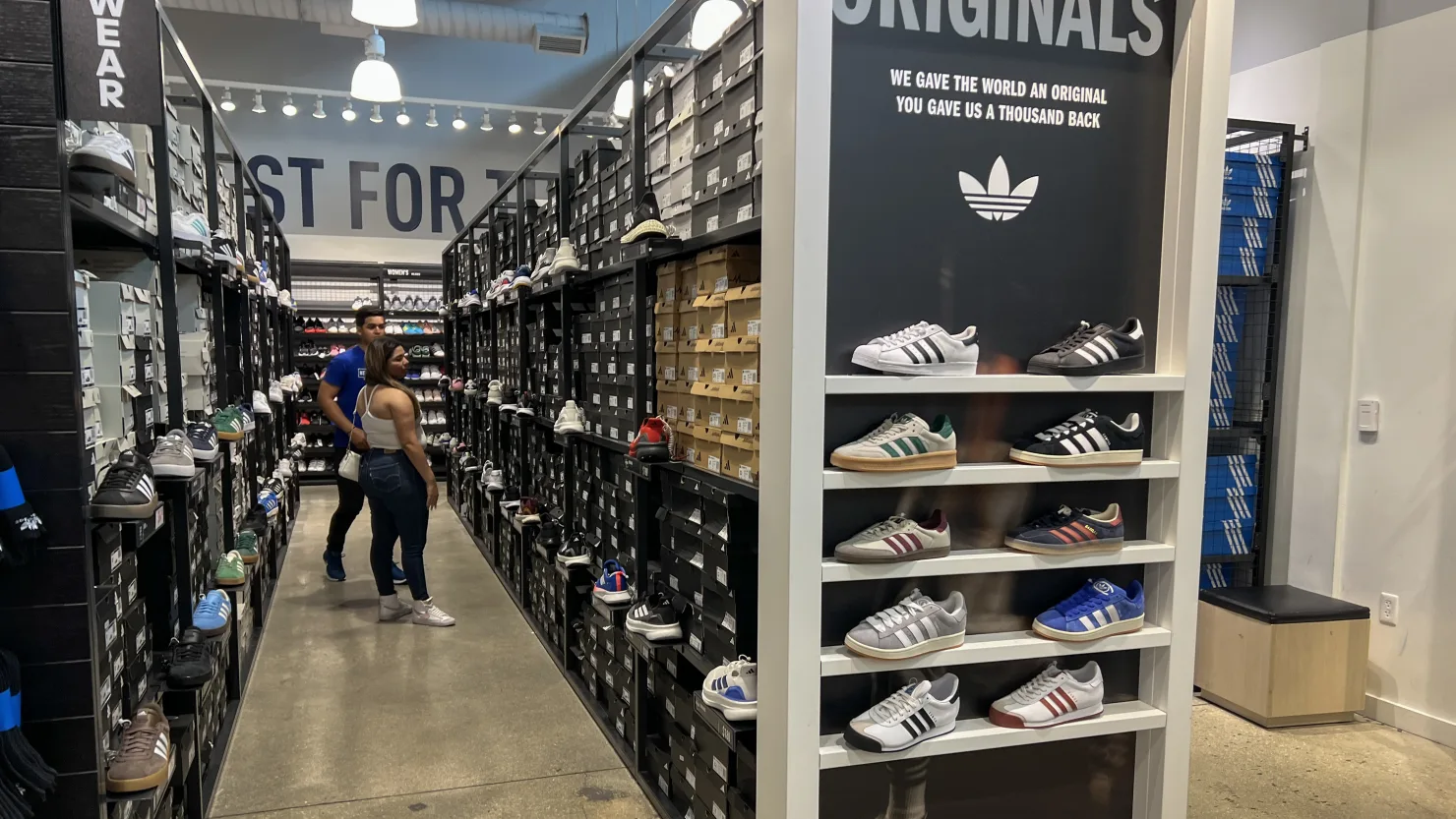Adidas has cautioned that U.S. consumers can expect higher prices on its products due to escalating tariffs imposed by President Donald Trump’s administration, adding uncertainty to what would otherwise have been a strong financial outlook.
In a statement released Tuesday, the German sportswear giant said that while it hasn’t yet determined the extent of the price hikes, tariffs are already weighing heavily on its ability to update full-year guidance. “Higher tariffs will eventually cause higher costs for all our products for the US market,” the company stated.
Adidas revealed it is “somewhat exposed” to the 145% effective tariff on goods imported from China but emphasized it had minimized exports from Chinese factories to the U.S. Still, broader tariffs on imports from other countries—currently around 10%—are proving more disruptive as trade talks remain unresolved. The company explained:
“Given the uncertainty around the negotiations between the US and the different exporting countries, we do not know what the final tariffs will be,” adding that it is “currently impossible to quantify” how cost increases might impact consumer demand.
Production constraints further complicate the picture. Adidas noted that it currently produces almost none of its products in the U.S., relying instead on manufacturers in countries such as Vietnam and Cambodia—both of which are now facing U.S. tariffs exceeding 40% in the absence of bilateral agreements.
This leaves Adidas in the same difficult position as many global retailers—from budget e-commerce brands like Temu to luxury houses like Hermès—navigating rising costs and uncertain demand in the world’s largest consumer market.
Strong Q1, Clouded Outlook
Despite trade headwinds, Adidas reported a standout first quarter. Net income from continuing operations surged 155% to 436 million euros ($496.5 million), outperforming analyst expectations. Sales rose 12.7% year-on-year to 6.15 billion euros, while operating margin expanded to 9.9%, a 3.8 percentage point increase.
The company credited strong brand momentum and a healthy order book, but opted to maintain its existing full-year guidance due to tariff uncertainties, stating the “range of possible outcomes has increased.”
Adidas also appears to have closed the chapter on its partnership with Ye (formerly Kanye West), which ended in 2022 following the rapper’s antisemitic remarks. The company said it has now sold the last of its Yeezy inventory.
Analysts reacted positively to the quarterly results. Deutsche Bank called it a “good print,” and Mamta Valechha of Quilter Cheviot highlighted broad-based growth across regions and channels: “Footwear continues to be a strong performer… Adidas will hope these trends continue in the face of the economic uncertainty created by tariffs in the US, but unfortunately we very much have to wait and see before the full impact comes through.”






